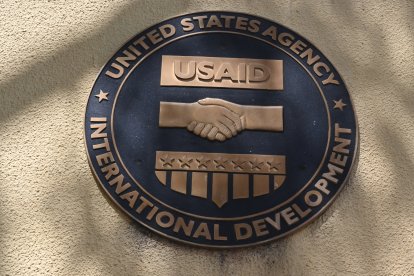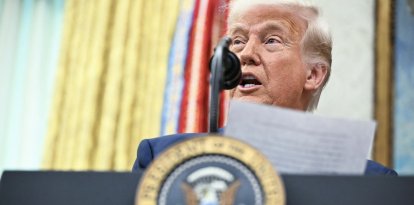Federal judge denies USAID contractors' request to block mass layoffs
Judge Nichols found that the contractors failed to demonstrate irreparable harm or a likelihood of success on the merits to justify the restraining order.

US Agency for International Development (USAID)
A federal district judge, Carl Nichols, on Thursday denied a request by the Personal Services Contractors Association, a group representing contractors for the United States Agency for International Development (USAID), to issue a temporary restraining order blocking the Trump Administration's mass termination of their contracts. The decision allows a key component of the government's effort to dismantle the agency to move forward, despite warnings from contractors about the irreparable harm they face.
The association had filed a lawsuit last month against the Trump administration following an order by the secretary of state that suspended work related to foreign assistance and contracts.
According to the complaint, contractors (of which there are approximately 1,110, with 46% working overseas) received termination notices and alleged that this suspension cut off "essential communications and network access, endangering their personal safety and security" and basic services such as water and electricity in their homes overseas, as well as disrupting humanitarian aid oversight "often lifesaving humanitarian relief." "The impact around the world of freezing foreign aid funding and stopping foreign aid programs has been and remains calamitous,” they said.
During a hearing Wednesday, Carolyn Shapiro, an attorney for the plaintiffs, warned that "the destruction of USAID is now imminent" and that refusing to grant the requested relief could result in a "Humpty Dumpty" type scenario, where the agency, once dismantled, could not be rebuilt. Shapiro argued that contractors face irreparable harm due to the government's "structurally unconstitutional decision-making" beyond individual damages.
However, Judge Nichols found that the contractors failed to demonstrate irreparable harm or a likelihood of success on the merits to justify the restraining order.
In his ruling, he noted that any harm suffered is "directly traceable" to the contract changes made by the government, suggesting that relief should be sought through other avenues, such as claims for money damages. He further characterized the damages as "generalized grievances" that do not meet the threshold necessary for injunctive relief.
The Department of Justice attorney, Michael Clendenen, defended the government's position, comparing the contractors' situation to a previous USAID employee union case. In that case, Nichols initially granted a temporary restraining order, but later dissolved it upon finding the unions' claims of harm "overstated." Clendenen stressed that the contractors have a 15-day notice before termination, which would act as a buffer, and that any economic loss could be compensated through other legal channels.
Judge Nichols acknowledged a difference between the two cases: While unionized employees were placed on paid leave, contractors face full layoffs. Yet he upheld his decision not to intervene immediately, allowing Trump Administration's USAID downsizing process to continue.
RECOMMENDATION





















